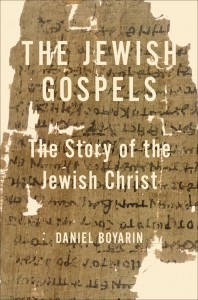Can England be Loved?
 I have learned that the Scottish love Scotland. And the Welsh love Wales. But do the English love England?
I have learned that the Scottish love Scotland. And the Welsh love Wales. But do the English love England?
As I’ve shared this observation with my English friends, and as it becomes clear what the final question is going to be, before I even ask it they are shaking their heads with a wry expression, “No, no we don’t.”
Love? It’s as if it’s a category mistake. I’m not sure what the prevailing sentiment actually is: Respect? Concern? Admiration? Affection? Options that have been volunteered to me range from the negative (“We resent our society.”) to the self-deprecating (“We’re a little bit embarassed about England.”) to the faux-humble (“We know we’re good we don’t need to flaunt it.”) to the perplexed (“Well, we don’t know who we are anymore.”) Of course, support for cricket and rugby teams cannot be questioned, and is a common expression of loyalty. But love? What does that even mean?
As an “outsider” observer I can offer some musings about why this is the case: Perhaps England as a concept isn’t “local” enough; we can speak of love much more readily for Yorkshire, or Cornwall, or Norfolk! Perhaps England doesn’t have the experience of shared and common adversity that is present in the history of the other UK countries; there has been very little to knit the country together in it’s own identity. If you’re English, or you know England, I’d love to hear your thoughts and opinions!
The motivation for my thinking about this is missiological and prayerful. It was sparked by the opportunity Gill and I had recently of spending time in retreat at Ffald-y-brenin in Wales. As part of the rhythm of prayer there they include a “Caleb prayer for Wales.” It’s a prayer for mercy and revival:
O High King of Heaven,
Have mercy on our Land.
Revive your Church.
Send the Holy Spirit for the sake of the lost, the least, and the broken.
May your Kingdom come to our nation.
in Jesus’ mighty name.
Amen
Prayed by the Welsh, this prayer is gentle but fervent, and with deep deep roots. It recalls revivals of the past and yearns and longs for new things in the present. It imagines life-giving restorative reconnection with God intermingling with the valleys and the hills, the families and the industrial cities. It looks to “Jesus’ mighty name” as a hope for the lost, the least, and the broken. It is prayed confidently in acknowledgement of God’s will, because they love their land, and they want God’s best for it. The prayer reveals a missiological heart.
But if “love for England” is an ungraspable concept, what do we have that can stir us for God’s mission? What is it that wells up (or could well up) within the English to pray this prayer for their land? What is the missiological heart for England?
My conclusion is this: England is and can be loved. It can be loved with a missiological heart – even those big detached chunks of Southern England that are geographically defined more by their train line to London than their sense of “nationhood,” community, or place.
My prayer for myself, and for the church, is that we would grow in this love. That we would be more and more moved with the heart of God. This means to be prayerfully weeping because of the sin we see, and the destructive things we know are hidden away to fester, and the roots of idolatry now writ large in the whole Western world. It means travailing for lives and communities to be convicted, awakened, and turned towards life-pertaining things. And above all it means hope – to be trusting in God’s mercy as we dare to believe that the villages and market-towns, the estates and seething throngs of commuters, can somehow encounter and embrace, together, a living experience with a risen Saviour.
Can England be loved? Yes. But it will take, as they say with a phrase now full of meaning, the “love of the Lord.”




 I have an ongoing interest in the interaction between first-century rabbinical Judaism and Christianity. On each exploration I find increased depth and colour to my reading of the New Testament. I picked up Boyarin’s book The Jewish Gospels on something of a whim and for the title alone.
I have an ongoing interest in the interaction between first-century rabbinical Judaism and Christianity. On each exploration I find increased depth and colour to my reading of the New Testament. I picked up Boyarin’s book The Jewish Gospels on something of a whim and for the title alone.